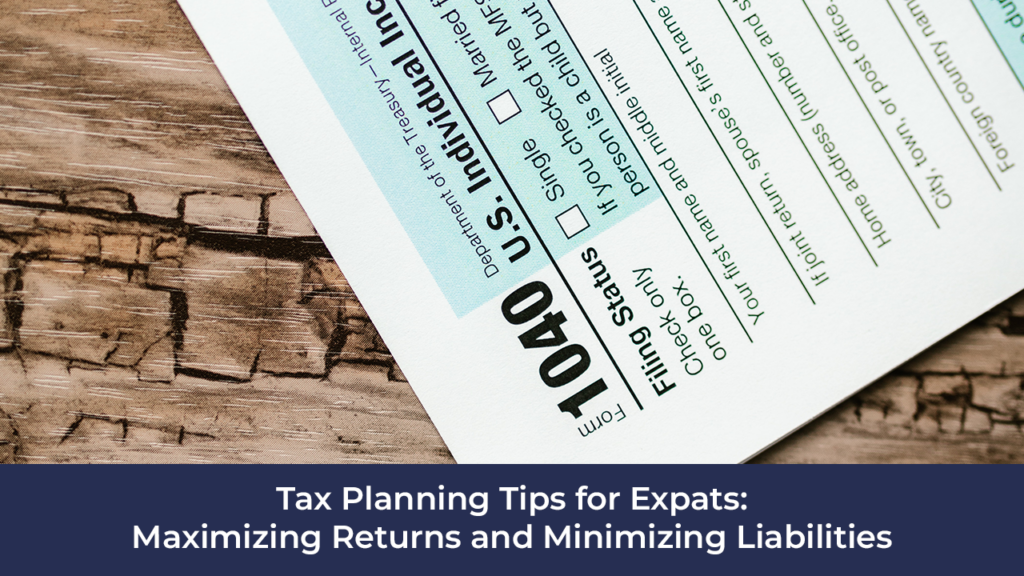Investing can be a daunting prospect, especially for expats living in a foreign country like Germany. The decision-making process becomes even more complex when you have to consider whether to pursue long-term or short-term investment goals. Each approach comes with its own set of advantages and risks. In this article, we will explore the factors expats in Germany should consider when deciding between long-term and short-term investment strategies. We’ll also emphasize why long-term investments are often the safer and more lucrative approach.
Understanding Your Investment Goals
Before delving into the specifics of long-term vs. short-term investment strategies, it’s crucial to understand your investment goals. Your financial objectives will play a pivotal role in determining the appropriate strategy for your unique situation. Here are some common investment goals that expats in Germany may have:
- Wealth Accumulation
Many expats aim to build wealth over time, with the intention of achieving financial stability and security in the future. They may have long-term financial goals such as buying a home, funding their children’s education, or retiring comfortably.
- Capital Preservation
Others may prioritize protecting their capital and minimizing the risk of losing money. These individuals may be more risk-averse and focused on preserving their initial investments rather than generating substantial returns.
- Income Generation
Some expats may seek to generate regular income from their investments to cover living expenses or supplement their current income. This is often a consideration for retirees or those looking to supplement their job income.
- Speculative Gains
There are also individuals who view investing as a way to speculate and potentially generate quick profits. While this approach can be lucrative, it also carries higher risks.
- Short-Term Financial Goals
Expats may have short-term financial goals like buying a car, funding a vacation, or starting a small business. These goals typically have a shorter time horizon and require a different investment strategy.
Once you’ve identified your specific investment goals, you can tailor your investment strategy accordingly.
Long-Term Investment Strategies
Long-term investment strategies are characterized by a buy-and-hold approach, where investors commit their funds to assets for an extended period, often several years or even decades. These strategies are well-suited for expats in Germany who prioritize wealth accumulation and financial security. Here’s why:
- Compound Interest
One of the most compelling reasons to opt for long-term investments is the power of compound interest. Compound interest allows your initial investments to grow not only based on your principal amount but also on the interest or returns earned on that principal. Over time, this compounding effect can lead to exponential growth in your portfolio.
Tip: Start investing early to maximize the benefits of compound interest. Even small, regular contributions can make a significant difference over the long term.
- Risk Mitigation
Long-term investments tend to be less susceptible to short-term market fluctuations. While there may be ups and downs along the way, history has shown that the financial markets tend to recover and grow over the long term. This provides a level of risk mitigation that can help protect your investments from market volatility.
Tip: Diversify your portfolio across different asset classes, such as stocks, bonds, and real estate, to further reduce risk.
- Tax Benefits
In many countries, including Germany, there are tax advantages associated with long-term investments. Holding investments for a certain period can lead to reduced capital gains taxes or tax-free gains in some cases. Understanding the local tax laws is crucial for optimizing your returns.
Tip: Consult with a tax advisor or financial planner to make the most of tax benefits available in Germany.
- Emotional Discipline
Long-term investments require less frequent decision-making and trading. This can help investors avoid making impulsive decisions driven by short-term market fluctuations or emotions. Embracing a disciplined, buy-and-hold mentality is often easier with long-term strategies.
Tip: Create a well-defined investment plan and stick to it. Avoid reacting to short-term market noise.
Short-Term Investment Strategies
Short-term investment strategies are designed to generate quick profits or meet immediate financial needs. They typically involve a more active approach to managing your portfolio. While they can be appealing, especially if you have short-term financial goals, they come with certain risks:
- Higher Risk
Short-term investments often involve higher risks, as they are more susceptible to market volatility. A sudden market downturn can result in significant losses if you need to access your funds at the wrong time.
Tip: Only allocate a portion of your investment portfolio to short-term strategies if you have specific short-term financial goals.
- Increased Stress
Active trading and constant monitoring of your investments can be stressful. It requires making quick decisions and staying updated with market news, which may not be suitable for everyone.
Tip: If you choose short-term strategies, be prepared for the emotional toll they can take. Consider setting strict limits and stop-loss orders to manage risk.
- Transaction Costs
Frequent buying and selling of assets can lead to higher transaction costs, including brokerage fees and taxes. These costs can eat into your overall returns.
Tip: Factor in transaction costs when calculating potential profits from short-term investments.
- Limited Time for Recovery
In the event of losses, short-term investors have limited time for their portfolios to recover. This can be especially concerning if you rely on these investments to meet immediate financial needs.
Tip: Have a backup plan or emergency fund in place to cover unexpected expenses if your short-term investments underperform.
Finding the Right Balance
For many expats in Germany, a balanced approach that combines both long-term and short-term investment strategies may be the most prudent choice. This approach allows you to work toward your long-term financial goals while also addressing short-term financial needs and opportunities. Here’s how to strike the right balance:
- Set Clear Priorities
Identify which of your financial goals are short-term and which are long-term. Allocate your funds accordingly, ensuring that you have a sufficient portion of your portfolio dedicated to long-term investments.
Tip: Prioritize your long-term goals, such as retirement, and allocate the bulk of your investments to support them.
- Diversify Your Portfolio
Diversification is key to managing risk in both long-term and short-term investments. Spread your investments across different asset classes and geographic regions to reduce risk.
Tip: Review your portfolio regularly to ensure it remains diversified and aligned with your goals.
- Emergency Fund
Maintain an emergency fund separate from your investments. This fund should cover at least three to six months‘ worth of living expenses, ensuring you can handle unexpected financial challenges without tapping into your investments prematurely.
Tip: Keep your emergency fund in a highly liquid, low-risk account, such as a savings account.
- Regular Review and Adjustments
Periodically review your investment portfolio and assess whether it aligns with your evolving goals and risk tolerance. Adjust your strategy as needed to stay on track.
Tip: Consider rebalancing your portfolio annually or when your financial circumstances change significantly.
Conclusion and Key Take Aways
For expats in Germany, it’s important to remember that investing is not a one-size-fits-all endeavor. Your individual circumstances, goals, and risk tolerance should guide your investment decisions. In many cases, striking a balance between long-term and short-term strategies can provide the best of both worlds, allowing you to build wealth for the future while addressing immediate financial needs.
In summary, here are some key takeaways for expats in Germany:
- Know Your Goals: Clearly define your financial objectives, whether they are focused on wealth accumulation, capital preservation, income generation, or short-term expenses. Understanding your goals is the first step toward crafting a tailored investment strategy.
- Long-Term Benefits: Long-term investments, driven by the power of compound interest, can provide a more stable and potentially lucrative path to financial success. Consider allocating a significant portion of your portfolio to these investments, especially for long-term goals like retirement.
- Short-Term Considerations: Short-term investments can be useful for addressing immediate financial needs or opportunities. However, be aware of the higher risks and potential for increased stress associated with these strategies.
- Balanced Approach: Striking a balance between long-term and short-term strategies can offer flexibility and risk management. Diversify your portfolio, maintain an emergency fund, and regularly review and adjust your investments to stay on track.
- Seek Professional Guidance: If you are uncertain about the best approach for your unique situation, consider consulting with a financial advisor or planner who specializes in expat finances and understands the nuances of the German investment landscape.
Remember that investing is a journey, not a destination. It requires patience, discipline, and ongoing education. By tailoring your investment strategy to align with your goals and circumstances, expats in Germany can navigate the complexities of the financial world and work toward achieving their long-term financial dreams.




